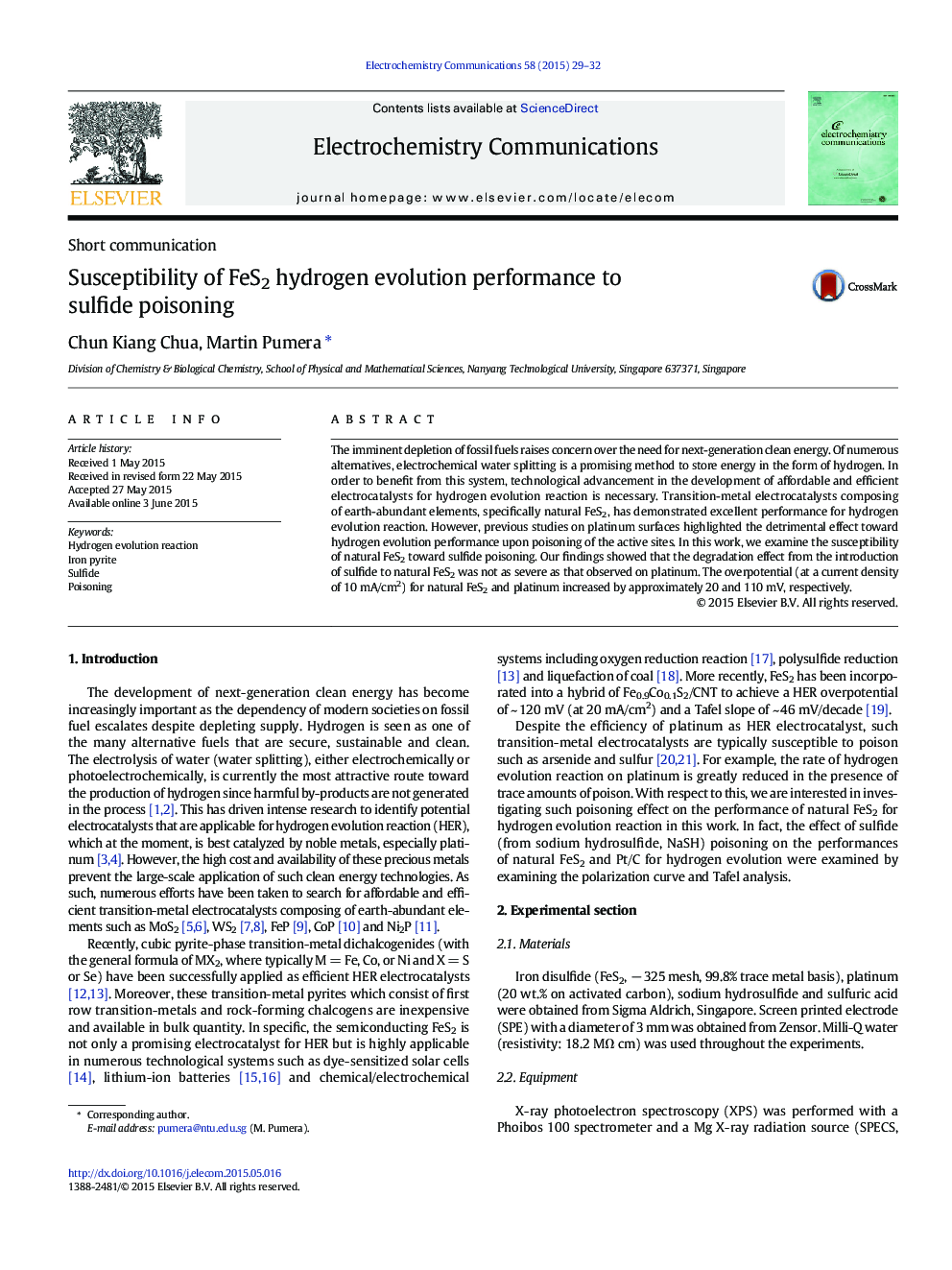| Article ID | Journal | Published Year | Pages | File Type |
|---|---|---|---|---|
| 178800 | Electrochemistry Communications | 2015 | 4 Pages |
•The effect of sulfur poisoning on the performance of natural FeS2 for hydrogen evolution is evaluated.•Natural FeS2 poisoned with sulfur showed higher hydrogen evolution overpotential but lower Tafel slope.•Natural FeS2 is less susceptible to sulfur poisoning than platinum.
The imminent depletion of fossil fuels raises concern over the need for next-generation clean energy. Of numerous alternatives, electrochemical water splitting is a promising method to store energy in the form of hydrogen. In order to benefit from this system, technological advancement in the development of affordable and efficient electrocatalysts for hydrogen evolution reaction is necessary. Transition-metal electrocatalysts composing of earth-abundant elements, specifically natural FeS2, has demonstrated excellent performance for hydrogen evolution reaction. However, previous studies on platinum surfaces highlighted the detrimental effect toward hydrogen evolution performance upon poisoning of the active sites. In this work, we examine the susceptibility of natural FeS2 toward sulfide poisoning. Our findings showed that the degradation effect from the introduction of sulfide to natural FeS2 was not as severe as that observed on platinum. The overpotential (at a current density of 10 mA/cm2) for natural FeS2 and platinum increased by approximately 20 and 110 mV, respectively.
Graphical abstractFigure optionsDownload full-size imageDownload as PowerPoint slide
